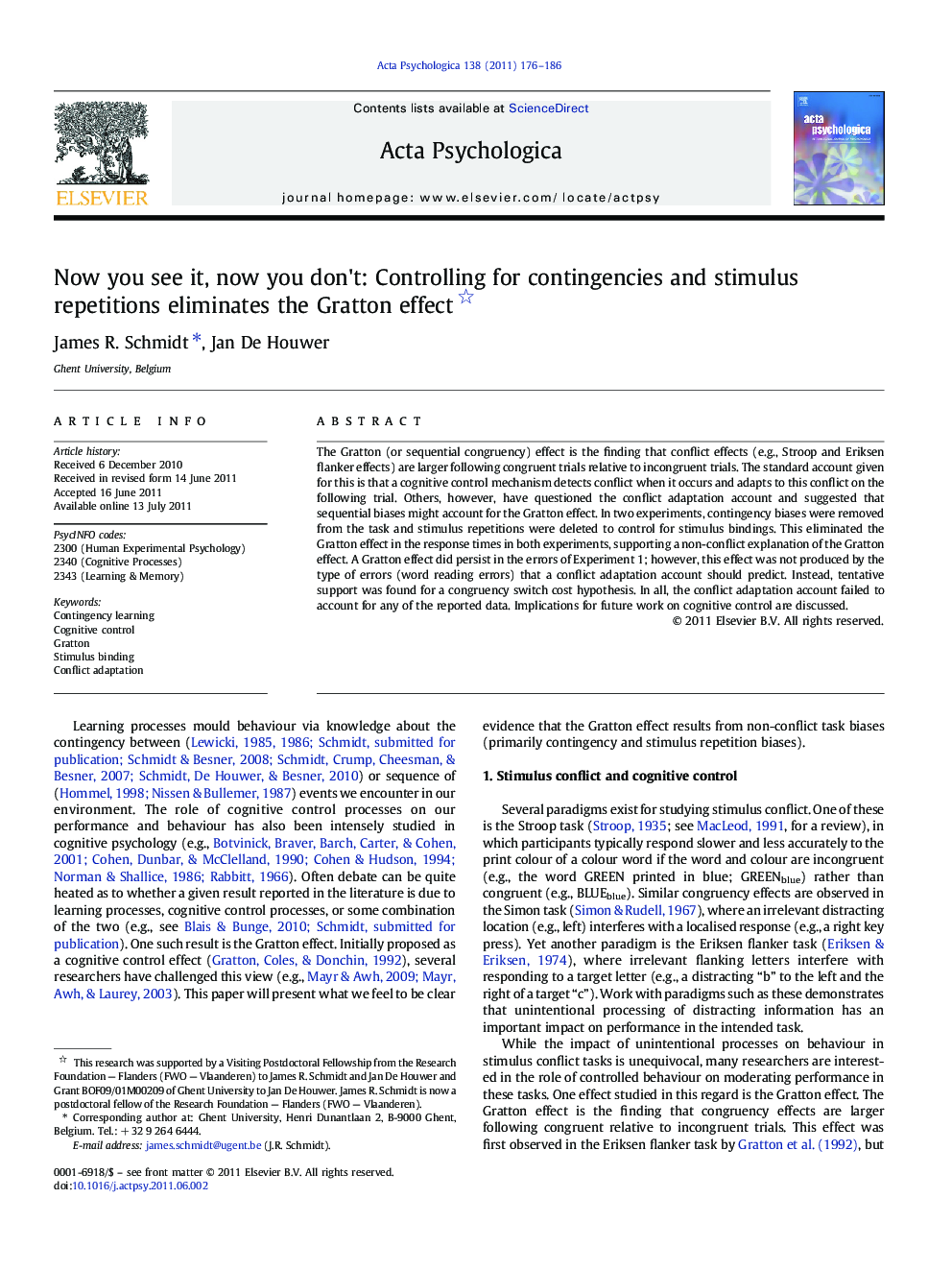| کد مقاله | کد نشریه | سال انتشار | مقاله انگلیسی | نسخه تمام متن |
|---|---|---|---|---|
| 920186 | 920270 | 2011 | 11 صفحه PDF | دانلود رایگان |

The Gratton (or sequential congruency) effect is the finding that conflict effects (e.g., Stroop and Eriksen flanker effects) are larger following congruent trials relative to incongruent trials. The standard account given for this is that a cognitive control mechanism detects conflict when it occurs and adapts to this conflict on the following trial. Others, however, have questioned the conflict adaptation account and suggested that sequential biases might account for the Gratton effect. In two experiments, contingency biases were removed from the task and stimulus repetitions were deleted to control for stimulus bindings. This eliminated the Gratton effect in the response times in both experiments, supporting a non-conflict explanation of the Gratton effect. A Gratton effect did persist in the errors of Experiment 1; however, this effect was not produced by the type of errors (word reading errors) that a conflict adaptation account should predict. Instead, tentative support was found for a congruency switch cost hypothesis. In all, the conflict adaptation account failed to account for any of the reported data. Implications for future work on cognitive control are discussed.
Research highlights
► Contingency biases and stimulus repetitions explain the Gratton effect.
► Stimulus repetition trims performed in two contingency-unbiased experiments.
► The Gratton effect was eliminated in response times.
► An effect in errors was observed, but was attributed to congruency switch costs.
► No support for the conflict adaptation account of Gratton effects was observed.
Journal: Acta Psychologica - Volume 138, Issue 1, September 2011, Pages 176–186